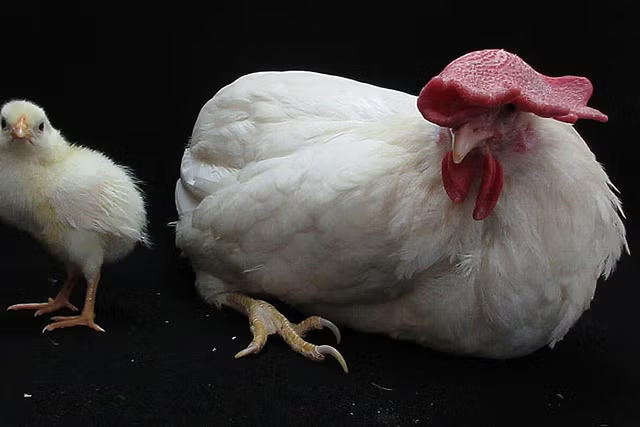In videos circulating on TikTok, content creators tell viewers that their belly fat is caused by high cortisol levels—"You're not fat, you've got a cortisol pouch"—and then promote a vitamin D supplement as a potential solution.
But experts told Newsweek that while the stress hormone cortisol could contribute to more fat storage in the belly, a "cortisol pouch" cannot be cured with a simple supplement.
"We hear of cortisol referred to as the 'stress hormone,' but it also does much more," endocrinologist Dr. Omayra Quijano-Vega of Paloma Health told Newsweek. "It is responsible for regulating metabolism, blood sugar and insulin production and is important in the sleep-wake cycles."
Endocrinologist Maria Teresa Anton of the Pritikin Longevity Center told Newsweek: "While not a medical term, 'cortisol pouch' is often used to describe the accumulation of belly fat associated with high cortisol levels. This is a common phenomenon where prolonged stress leads to increased abdominal fat."
Both endocrinologists agree that hormones, including cortisol, are important in fat storage processes and that a stressful lifestyle leading to high cortisol in the body could lead to more fat on the belly, colloquially known as a cortisol pouch.
But nutritional therapists who spoke to Newsweek said that taking vitamin D supplements is not necessarily the solution.
"The potential benefits of vitamin D supplementation for abdominal fat and cortisol regulation have generated significant interest in my clinic, but the science remains complex," nutritional therapist Rakhi Lad of Healthology told Newsweek.
"Some research suggests that low vitamin D levels may be linked to increased abdominal fat, particularly in women, and could influence cortisol production. However, the evidence is not definitive, and there is no simple solution," Lad said.
Lad added that it is essential to test vitamin D levels before taking a supplement and that the nutrient's role in reducing belly fat and managing cortisol levels "should be approached with realistic expectations."
She also said that vitamin D supplementation is complex and that its efficacy depends on an array of factors, including the form of the supplements, the dosage and some characteristics of the person taking them, such as age and sun exposure. Therefore, she recommends seeking professional advice before taking vitamin D.
Nutritional therapist Charlotte Watts told Newsweek that TikTok video creators promoting vitamin D supplements to fix a cortisol belly are reducing complex science into a misleading sound bite.
"They're talking about tummy fat or visceral fat, which has many, many, many factors in its accumulation," Watts said. "There are a host of nutrients involved...and a lot of the problem is sugar in the diet."
She added that a single nutrient is unlikely to "fix" a problem in this way: "You're not suddenly going to get a flat belly."
For Watts, part of the problem with this trend is the expectation surrounding flat bellies.
"Let's be clear, if you're a woman in particular—and certain body types in men—[belly pouches are] not an unhealthy thing," she said. "I think that's really important.
"We've got this culture of flat belly obsession, which actually means a lot of people are doing a lot of damage to themselves: overworking the core and having that very judgmental relationship with self and body. This is a huge thing."
Do you have a tip on a food story that Newsweek should be covering? Is there a nutrition concern that's worrying you? Let us know via science@newsweek.com. We can ask experts for advice, and your story could be featured in Newsweek.
Disclaimer: The copyright of this article belongs to the original author. Reposting this article is solely for the purpose of information dissemination and does not constitute any investment advice. If there is any infringement, please contact us immediately. We will make corrections or deletions as necessary. Thank you.



